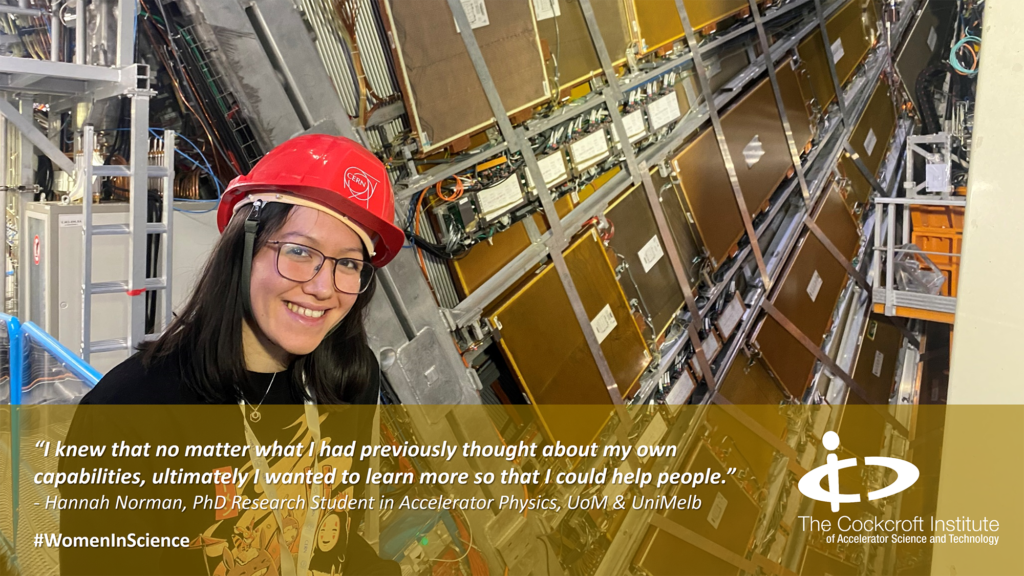
When I was in school, I never considered that science could be a career path for me. I thought I wasn’t smart enough, skilled enough, and I wanted to pursue a more creative career. That changed one day when I was around aged 15, when I learned about how physics could be applied in medicine to treat and diagnose cancer. I was fascinated, and I knew that no matter what I had previously thought about my own capabilities, ultimately I wanted to learn more so that I could help people. This resulted in me studying Physics and Maths at A-level, and carrying on to do an MSci in Physics at Royal Holloway, University of London.
I knew that the CI is well-known for their links to medically applied accelerators, which prompted me to apply for a PhD in Accelerator Physics with a focus on particle therapy. I now am in my second year of my PhD with the Universities of Manchester and Melbourne, and actually am just about to jet off to Melbourne for a year of my studies there! I’m looking forward to working with my Melbourne supervisor Dr Suzie Sheehy on a test proton therapy beamline that will (hopefully) be built in the UniMelb basement during my time there.
“I knew that no matter what I had previously thought about my own capabilities, ultimately I wanted to learn more so that I could help people.”
Hannah Norman
Currently I’m working on performing some simulations in MAD-X (an accelerator lattice design tool) and OPERA (a magnet modelling/design tool) on a niche kind of superconducting magnet that can be used in medical accelerators to shrink them and deliver more efficient treatment in the future. I’m doing this work in collaboration with the NIMMS (Next Ion Medical Machine Study) group at CERN for their designs for the next generation of particle therapy accelerators. A typical workday for me involves me staring at my screen lots of the time trying to get my code to work!
I didn’t realise how much time in a PhD is spent trying to make things work and following dead ends. It certainly is a steep learning curve compared with undergraduate study, and definitely wasn’t helped by working from home during my whole first year due to the pandemic. Despite that, there are many positives as well. I enjoy being among the first to hear about exciting new developments in the field of particle therapy, as well as being part of the tight knit community and having lots of support from my supervisor Prof Rob Appleby.
Being a woman in science certainly has its challenges. During my undergraduate studies, I had a wonderfully large network of female colleagues who I remain to be great friends with, but the loss of female colleagues in postgraduate education is certainly felt. It’s a shame that the higher you go in academia, the fewer women you see around you, and truthfully it can sometimes feel lonely. Hopefully in the future it won’t be so uncommon to be part of more diverse research groups, and I’m excited to see more women in physics driving the field forward.
